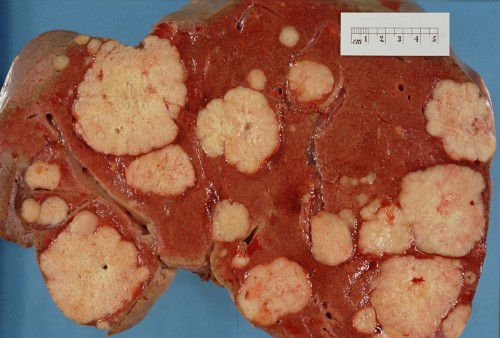Researchers at the University of Lund and other institutions in Sweden say that they have succeeded in discovering clear markers in the blood for the existence of pancreatic cancer, one of the deadliest types of cancer due to the lack of early detection.

Pancreatic cancer is difficult to detect when it is still small. A new blood test developed by researchers at Lund University in Sweden, together with Herlev Hospital, Knight Cancer Center and Immunovia AB can detect pancreatic cancer in very early stages of the disease. The findings were published in the Journal of Clinical Oncology
Due to diffuse symptoms, pancreatic cancer is usually diagnosed at a very late stage of disease progression. Therefore, although pancreatic cancer accounts for less than 3% of all cancer cases, more people die from it today than from breast cancer. By 2030, pancreatic cancer is expected to be the second most lethal type of cancer in the world.
"Our test can detect pancreatic cancer with 96% accuracy in stage I and II, when there is still a possibility of successful surgical intervention. Today, there are not many treatment options for advanced pancreatic cancer, and as mentioned, this is the stage where its existence can only be diagnosed", explains Prof. Karl Borrebaeck from the Department of Immunotechnology at Lund University.
The researchers used samples from patients in Denmark and the USA, at different stages of the disease. The blood test is based on an antibody which itself consists of a microscopic array consisting of hundreds of antibody fragments. These antibody fragments are specific to several proteins of the immune system, including cancer-related antigens.
Because the immune system is the first to respond to complex disease threats, such as cancer, autoimmune diseases, and infections, that same microscopic array makes it possible to detect this early response of the immune system and provides information about the development of tumors long before detection by CT or ctDNA detection. Out of all the markers, 29 markers related to pancreatic cancer were located, with an accuracy of 96% in stages I and II.
In the future, a routine test could allow the detection of people who are at increased risk of developing pancreatic cancer, as well as people who carry a hereditary risk, new diabetes patients and patients with chronic pancreatitis.
In the next step, a test will be performed on a large population in the US of people who are at high risk of pancreatic cancer.
to the notice of the researchers
More of the topic in Hayadan:

2 תגובות
From whom can the test be purchased in the future. I assume she will cost a lot of money and be out of the health basket at first.
If this is true, this is a real breakthrough in the world of medicine. Today, when someone is informed of this disease, it is often terminal. Steve Jobs had a rare breed, Patrick Swayze did. And to many I know around.
Pretty